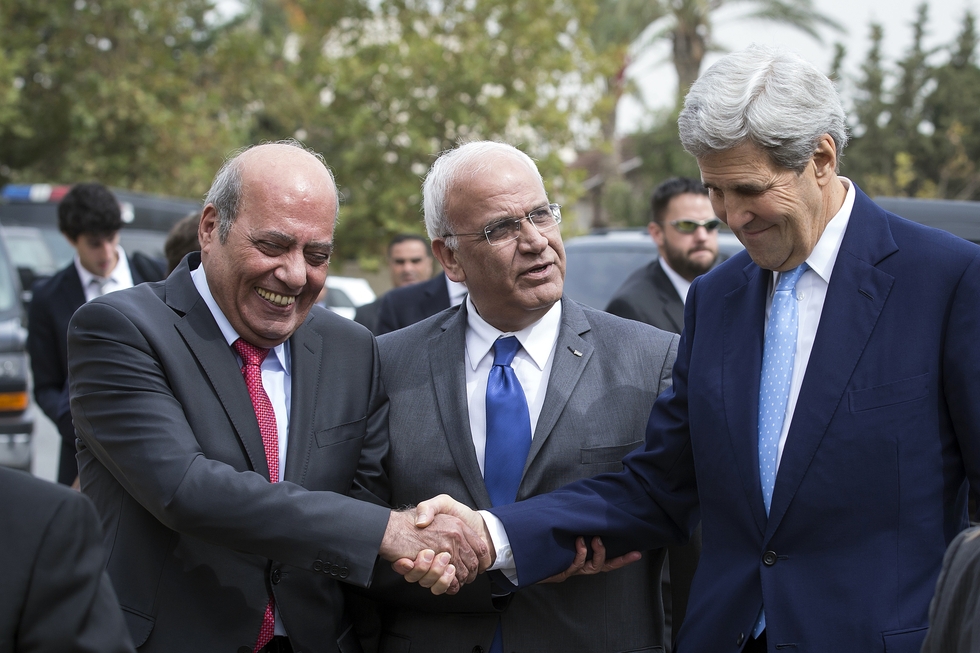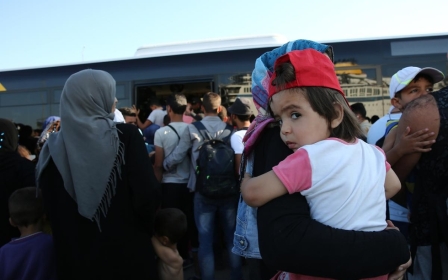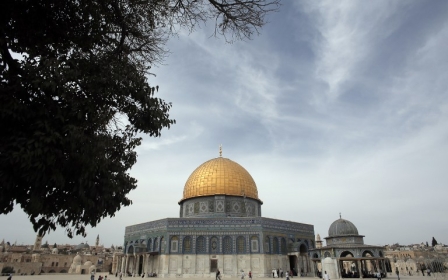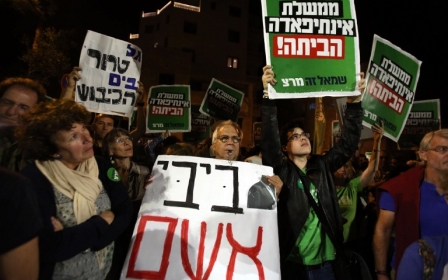Kerry creates more problems than solutions in Palestine

On 1 October, Palestinians burst into the streets protesting a racist system that allows settler mobs to attack Palestinians and their properties, lands, and holy sites; and burn families to death along with their children.
It was a stark expression of anger in response to the fact that no action has been taken against the criminals who perpetrated the horrific burning of an 18-month-old Palestinian toddler at the end of July. The parents of Ali Dawabsha, who were burnt in the attack, died from their wounds weeks later. Meanwhile, the state of Israel continues to show the world that they are uninterested in Palestinian victims by concealing the perpetrator's identity and tacitly supporting their actions.
To date, historic Palestine remains in the midst of a deep crisis facing a myriad of dangers on all fronts. The profound urgency and complexity of the protests that are now sweeping across the two sides of the green line have pushed the US administration to act belatedly in an attempt to contain the deteriorating situation.
Despite the failure of the peace talks during the summer of 2013, the US administration has again acceded to the desire of Secretary of State John Kerry to beat the dead horse of Israeli-Palestinian cooperation by proposing another round of meetings to “reduce tensions”.
Last week, Kerry met with the Israeli Prime Minister Benjamin Netanyahu in Berlin and with Palestinian President Mahmoud Abbas in Jordan over the weekend.
Ahead of these meetings, Kerry called on both sides to exercise restraint, to refrain from actions that could escalate the situation, and to take urgent steps to end the current "senseless" violence. According to Kerry, the priority in these meetings was to restore stability and reduce tensions that have been running high across the Occupied Territories.
'No return to 30 September'
Speaking to reporters after meeting with the two leaders, Kerry voiced cautious hope that there may be a way to soothe violence. He told reporters he was "hopeful," without elaborating. Yet no one familiar with the long stubborn conflict and its history of half a century of failed diplomacy believes Kerry’s optimistic words.
In fact, Kerry’s careful, diplomatic words create more problems than solutions. There is little evidence that his priorities are achievable unless they provide answers to some basic questions. What sort of stability is Kerry referring to and to which side does that stability need to be restored? What tensions need to be reduced? Is he referring to the particular tensions that existed just before 1 October or the many chronic tensions that preceded that date and that have been going on unnoticed by many, including officials in Kerry’s administration?
For many observers, these meetings and any upcoming ones will be fruitless if Kerry’s understanding of the current unrest mirrors the Israeli point of view. Palestinians and their supporters have the right to question the intentions, given the fact that Kerry’s strong assertions almost never follow the killing of Palestinians. Palestinian deaths at the hands of the Israeli army and settlers have been accumulating unchecked for years. These, however, have produced no calls for a meeting to stop the senseless Israeli violence or for a list of priorities to restore stability.
Kerry's meetings - more failure yet to come
Kerry’s round of meetings will surely result in more failure if stability amounts to restoring the reality preceding the current unrest. This reality has stripped Palestinians of their dignity, freedom, and normal lives - both as subjects of direct military occupation and as second-class citizens under a racist regime. The only chance of success for Kerry’s proposed priorities is ensuring there’s no return to 30 September, the day after, 1 October, was the day when the “tensions,” to use Kerry’s term, erupted.
Restoring stability will stay an unattainable goal without addressing the summary executions and the daily human rights violations carried out by Israel’s army and police, both of which are implementing a “shoot-to-kill” policy. According to UN figures, even before the eruption of the current protests, between January and September 2015, at least 26 Palestinians were killed by Israeli forces.
In other words, Israel killed one Palestinian every ten days, on the average, since the beginning of 2015, and none of the leading world diplomats discussed this violence. In fact, “senseless violence” by Israel against Palestinians has claimed one innocent life after another for the past seven decades, some of them directly and many others indirectly through home demolitions, land theft, abuse and torture of detainees, forced displacement, and inhumane and illegal siege.
Ending the culture of impunity
For tensions to be reduced, it is this senseless violence which needs to end. Any remedy must also include an end to the culture of impunity allowing Israelis to kill Palestinians and go scot-free. There is no chance of stability until perpetrators are brought to justice and Israel’s systematic crimes are brought to an end.
The generations born under occupation must be offered honest hope. Enclosed in ghettos under the false pretext of peace and left in despair between walls and checkpoints, harassed, arrested, imprisoned, nearly starved and denied their rights, their belief in a future has to be thoughtfully rebuilt. Reducing tensions requires restoring dignity.
When Palestinian voices are included, when Palestinian victims are named, when Palestinian choices are respected, and aspirations for freedom and dignity are taken into full account, only then will their anger and their protests end, restoring stability to historic Palestine. A mere, but imperative, first step in that direction is the immediate implementation of the Fourth Geneva Convention of 1949 which stipulates the protection of civilians during conflict and the prosecution of persons alleged to have committed grave crimes.
- Ghada Ageel is a visiting professor at the University of Alberta Political Science Department (Edmonton, Canada), an independent scholar, and active in the Faculty4Palestine - Alberta. Her new book “Apartheid in Palestine: Hard Laws and Harder Experiences” is forthcoming with the University of Alberta Press - Canada.
The views expressed in this article belong to the author and do not necessarily reflect the editorial policy of Middle East Eye.
Photo: US Secretary of State John Kerry is greeted by Palestinian Ambassador to Jordan Attallah Khairy (L) and Chief Palesinian negotiator Saeeb Erakat (C) upon his arrival for a meeting with Palestinian president Mahmoud Abbas in the Jordanian capital, Amman on 24 October 2015 (AFP)
New MEE newsletter: Jerusalem Dispatch
Sign up to get the latest insights and analysis on Israel-Palestine, alongside Turkey Unpacked and other MEE newsletters
Middle East Eye delivers independent and unrivalled coverage and analysis of the Middle East, North Africa and beyond. To learn more about republishing this content and the associated fees, please fill out this form. More about MEE can be found here.





